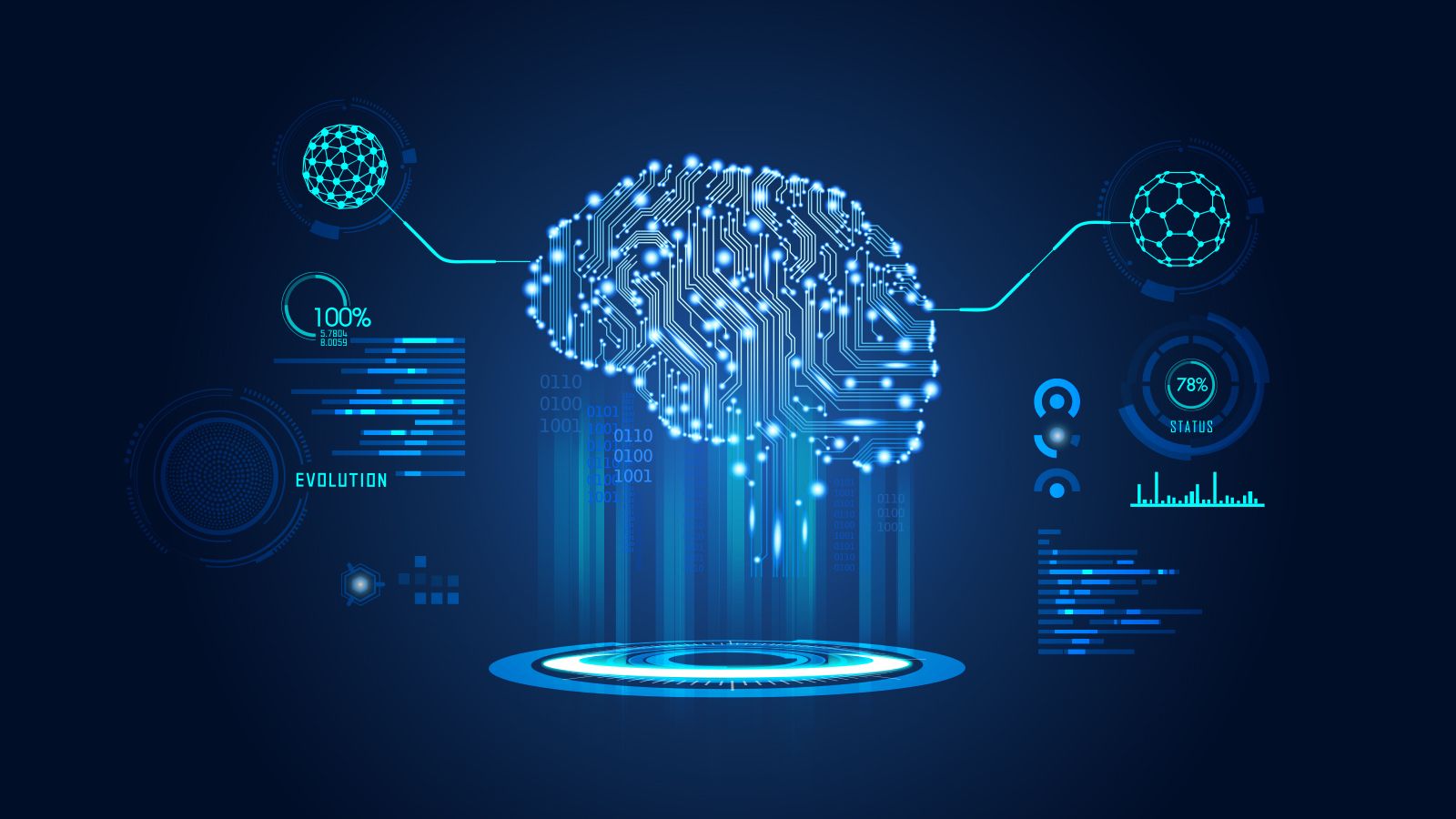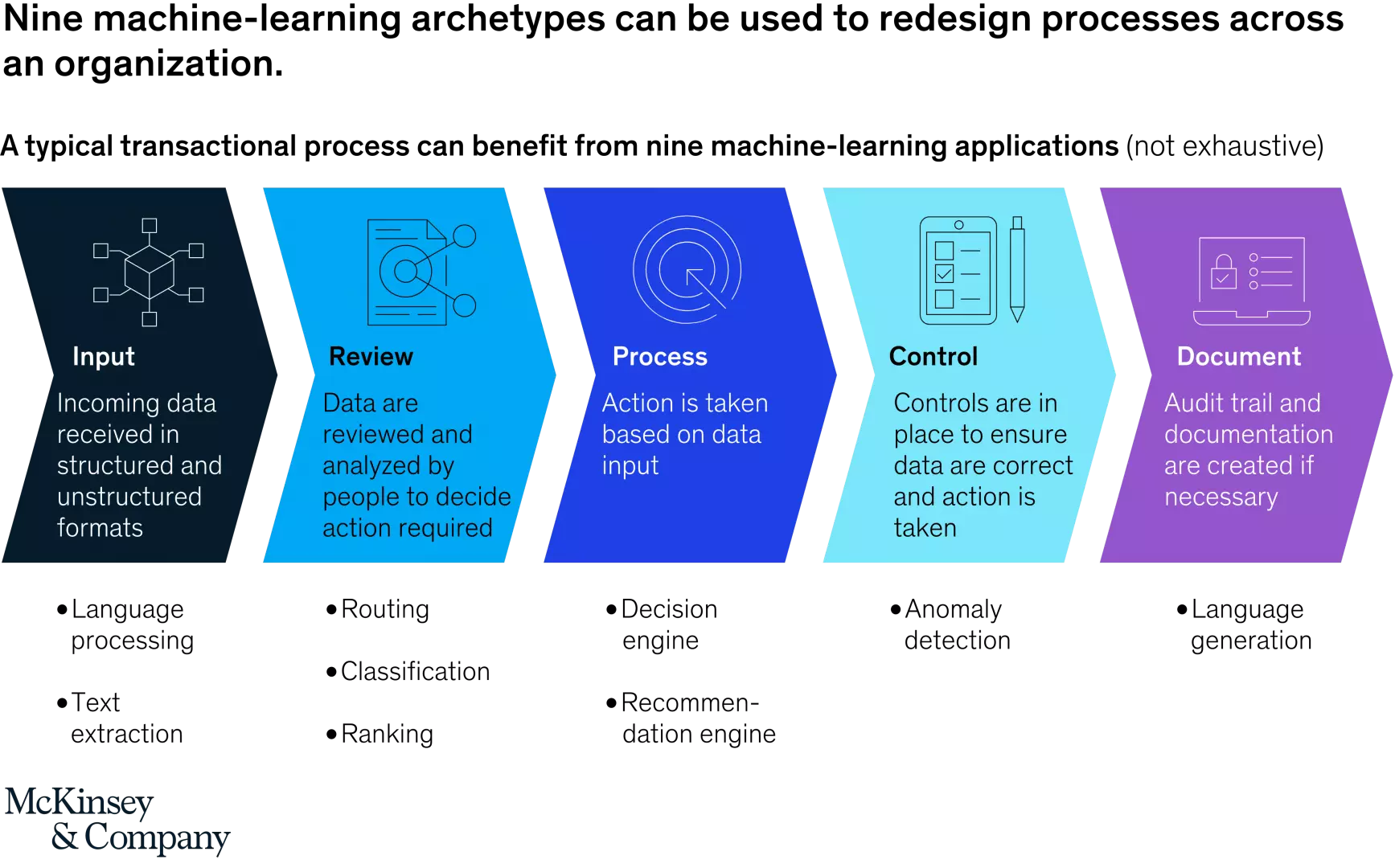Comments
- No comments found

Machine learning (ML) helps businesses effectively gain insights from raw data, increase security, improve customer service and improve sales & marketing.
It enables organizations to perform tasks on a scale and scope previously impossible to achieve.
Businesses can benefit from the well-planned application of machine learning in business problems that require an analysis of data, high in both volume and complexity.

One of the biggest differences between the businesses that are at the top in their respective industry and the ones that struggle to gain a foothold in the market is their ability to gather and use data. Businesses that are at the top of their game are the ones that collect data from various sources, analyze it, and use it as intelligence to improve business performance. These businesses invest in technologies like big data and ML to deal with increasingly voluminous and complex data that they use to solve business problems, as they constantly seek to grow. Following are five ways businesses are applying ML in business problems, and you can too:
Machine learning algorithms that are trained with an adequate amount of quality data can be highly adept at making sense of highly unstructured data, such as text written in everyday language, or objects in images. This ability can help businesses understand customer sentiments from social media communications, by measuring the ratio of positive to negative comments. It can also be used to identify and categorize images based on its contents, as is being done by Facebook for its platform.
Businesses are usually unable to run highly effective advertising campaigns, mostly due to their lack of knowledge of consumer behavior. Machine learning models can be trained to identify different customers and track their behavior online. This enables businesses to effectively manage social media ad campaigns to maximize customer engagement. ML can also automate ad bidding on different platforms for maximum cost-effectiveness, ensuring value is extracted from every penny invested in advertising.
One of the biggest problems faced by businesses is identifying specific customer needs. Machine learning algorithms can analyze online user behavior to identify their likes and preferences. This information can be used by businesses to show the customers highly relevant marketing communications. Targeted advertising increases the likelihood of customers being interested in the business’s offerings, which leads to a higher likelihood of a sale. Netflix uses machine learning to identify the tastes of every user by analyzing a number of variables such as their viewing history, age, gender, nationality, etc. and gives them highly specific show and movie recommendations. This application is also used by many online marketplaces to keep their users interested.
Customer relationship management (CRM) is another area where ML can solve businesses’ problems. By analyzing multiple variables to determine how satisfied customers are whenever they interact with a brand. Different businesses monitor different data points and run them through machine learning algorithms to evaluate their CRM initiatives and efforts. Gaining feedback from these algorithms and tweaking their customer experience helps businesses ensure maximum customer engagement. Machine learning can also improve AI chatbots for conversational commerce, by making them more human in their interactions.
Machine learning can also help businesses maintain fixed, physical assets such as vehicles and machinery. Businesses engaged in manufacturing use predictive maintenance powered by machine learning to identify early signs of mechanical failure in equipment. This leads to timely maintenance activities that minimize the need for extensive stoppages. Such applications have allowed manufacturers to save heavily on maintenance costs and maximize operational efficiency.
Thoughtful use of ML in business problems can lead to the accrual of benefits that compound into massive gains in the long run. Businesses should not only seek existing use cases for ML to follow, but also proactively seek new areas of applications where ML can play more strategic roles.
Naveen is the Founder and CEO of Allerin, a software solutions provider that delivers innovative and agile solutions that enable to automate, inspire and impress. He is a seasoned professional with more than 20 years of experience, with extensive experience in customizing open source products for cost optimizations of large scale IT deployment. He is currently working on Internet of Things solutions with Big Data Analytics. Naveen completed his programming qualifications in various Indian institutes.
Leave your comments
Post comment as a guest